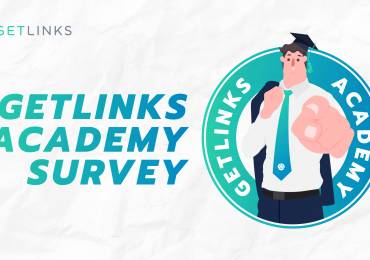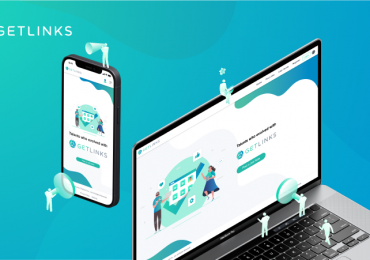Top Tech Interview Questions and How to Answer Them

No one is ever comfortable or relaxed during job interviews. You know it, we know it, tech interviewers know it.
It can be intimidating explaining your thought process to another software engineer, a team lead or a hiring manager. We help tech companies find candidates across Asia, and we’ve noticed the recurring interview questions.
Tech Interviewers are hard to please. Here is how to answer top interview questions and get offer letters from top tech companies.
![]()
1. How familiar are you with this programming language?
In most cases, you either know the language, you don’t know it well, or you don’t know it at all.
If you are familiar with the language, explain the advantages and talk about your preferences.
What if you know the basics? You don’t need to be a senior-level expert. Emphasize how well you solve problems with your current tech stack.
Not familiar with the language? Mention that you love working in new languages. Remember, tech companies are up against a tech talent shortage, and they have already checked your resume. They are looking for someone who can adjust and upskill.
![]()
2. What’s the most challenging project you have worked on?
Stop right there. They don’t really care about the project itself, they want to make you talk.
The best thing you can do is show that challenges excite you, you can come up with creative solutions, you work well with others.
Prepare for this question beforehand. Think about projects you’ve worked on: what motivated you, what parts did you contribute to the most, what challenges did you overcome? Present your interviewer with that problem you faced and the solution you provided. Show them the logic behind it.
Pro tip: try explaining it to a friend. Try to keep them engaged and adjust the length of your story accordingly.
![]()
3. Do you work best alone or as a part of the team?
Trick question. It seems like you need to pick a side, but you shouldn’t. They want you to be able to deliver results by yourself and work well with others. Your safe response: “I like to work alone on my part of the project, but I also enjoy sharing ideas and working with others.” Teamwork and the ability to communicate are on the list of the most in-demand soft skills for developers for a reason.
![]()
4. Are you comfortable with a coding test/assignment?
It may or may not happen, but you should always be ready for it. Remember, the interviewer will not only evaluate the outcome, but also the way you solve problems.
Get familiar with this form of evaluation and practice, practice, practice. There are hundreds of websites to help you with that. Our top pics are Codewars and Topcoder. There are platforms like Pramp designed specifically to help you pass interview programming tests.
Sometimes you are given a problem to brainstorm instead of a programming test.
Pro tip: Think out loud, use “we” instead of “I” as if you are already a part of the team. Ask questions and look for hints. Don’t rush it, take as much time as you need to come up with an answer.
![]()
5. What are your salary expectations?
It’s a trap! Unless you were given the budget range beforehand, do not try to throw numbers at them. You don’t want to aim too low or too high. Do your homework, go through the recent salary reports and find out the average salary for your position. This can be your anchor for further negotiation.
So what can you say? Something like: “I’m looking for a competitive offer, and I’d like to know more about the benefits.” Try asking about the salary range for this position. The answer might not be highly satisfying, but it’s good to know you are not wasting your time. Know your worth and don’t settle for the first offer even if it’s slightly above your salary expectations. It doesn’t hurt to ask for more.
![]()
6. How do you keep your skills up to date?
You know the drill. Talk about reading blogs, taking courses online, working on your own projects in your spare time. Interviewers are evaluating your enthusiasm and willingness to learn. It’s a great opportunity for you to mention your passions and start a conversation about your professional development with the company.
Pro tip: Mention going to tech events, workshops and joining hackathons. Being an active community member and keeping up with tech trends can help you stand out from the crowd.
![]()
7. Strange/unrelated question you have no idea how to answer.
Interviewers love to throw in a question that is not even remotely related to your job description. Real-life examples include “How many lamp posts are in London?”, “What’s the color of money?” or “Design a spice rack for the blind.”
You can’t prepare for this type of questions in advance, because they are designed to test your analytical skills and the ability to generate ideas. So how can you handle this situation?
Remember that an interview is not an exam, it’s a conversation.
Don’t be afraid to come up with an approximate answer. When presenting your solutions, clarify the conditions using phrases like “is that correct?”. Make the interviewer agree with you, show them that you can solve complex problems with limited resources.
When it’s all over.
Don’t forget to ask additional questions about the company. Prepare some questions in advance so you don’t get stuck. Try to end it on a positive note, compliment your interviewer on their choice of questions if it seems appropriate.
Some interviews go better than others. No matter what, don’t forget to show gratitude. Thank everyone for their time and don’t forget to send a short follow-up email.

 About the Author: Nat Poltavets
About the Author: Nat Poltavets
